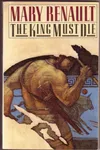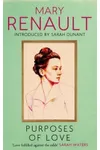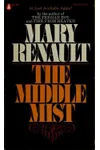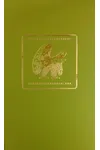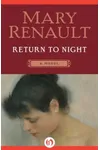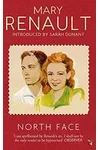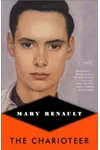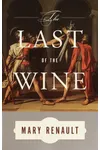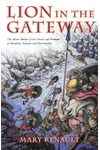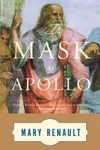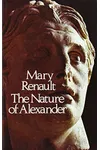Picture a British storyteller who brought ancient Greece to life with passion and daring—meet Mary Renault! Born in 1905, she wove historical fiction that pulsed with vivid characters and bold explorations of love, especially same-sex relationships. Her novels, like The King Must Die and the Alexander the Great trilogy, captivated readers with their rich detail and emotional depth, earning her a lasting place in literature.
Renault’s journey from a London nurse to a celebrated author is as fascinating as her stories. After finding freedom in South Africa with her lifelong partner, Julie Mullard, she crafted tales that broke boundaries and reimagined history. Let’s dive into her world!
The Making of Mary Renault
Eileen Mary Challans, known as Mary Renault, was born in Forest Gate, London, in 1905. A bookish child, she found solace in stories amidst a strained family life. At St Hugh’s College, Oxford, she studied English, soaking up philosophy and mythology under tutors like J.R.R. Tolkien. After graduating, she trained as a nurse, working through World War II while penning contemporary romances. In 1948, she and Mullard sailed to South Africa, escaping England’s censorship and homophobia for a more open society.
Mary Renault’s Unforgettable Stories
In the 1950s, Renault turned to historical fiction, setting her sights on ancient Greece. Her breakthrough, The Last of the Wine (1956), follows Alexias and Lysis, two Athenians navigating love and war under Socrates’ guidance. The novel’s meticulous detail and vibrant portrayal of Greek culture won critical acclaim. Her Theseus duology—The King Must Die (1958) and The Bull from the Sea (1962)—reimagines the mythical hero as a dynamic leader, blending myth with Bronze Age reality.
Renault’s Alexander the Great trilogy—Fire from Heaven (1970), The Persian Boy (1972), and Funeral Games (1981)—is her crowning achievement. Through vivid prose, she explores Alexander’s ambition, loves, and legacy, often through the eyes of his lover, Bagoas. Her style, steeped in Platonic philosophy, portrays love as a pursuit of ideals, with hierarchical relationships reflecting Greek norms. Renault’s unflinching depiction of same-sex bonds, rare for her time, added depth and authenticity.
Her novels brim with historical accuracy, thanks to travels in Greece and Crete, yet they pulse with human emotion. Renault’s ability to blend scholarship with storytelling makes her work timeless, inviting readers into a world both alien and familiar.
Why Mary Renault Matters
Mary Renault redefined historical fiction by bringing ancient Greece to life with sensuality and psychological insight. Historian Bettany Hughes praised her for capturing the “hardcore, drug-saturated sensuality” of the era. Her sympathetic portrayal of same-sex love challenged norms, inspiring writers like Suzanne Collins, who drew on The King Must Die for The Hunger Games. Renault’s legacy endures in her vivid storytelling and fearless exploration of identity.
In South Africa, she spoke out against apartheid, advocating for free expression. Her novels, translated into 20 languages and selling millions, continue to enchant readers, proving her timeless appeal.
About Mary Renault
- Born: September 4, 1905, London, England
- Died: December 13, 1983, Cape Town, South Africa
- Key Works: The Last of the Wine, The King Must Die, Alexander trilogy
- Awards: MGM Literary Prize (1947), CNA Award (1962)
Snag The Persian Boy and dive into Mary Renault’s spellbinding historical fiction! Her ancient Greece awaits, full of passion and adventure.
